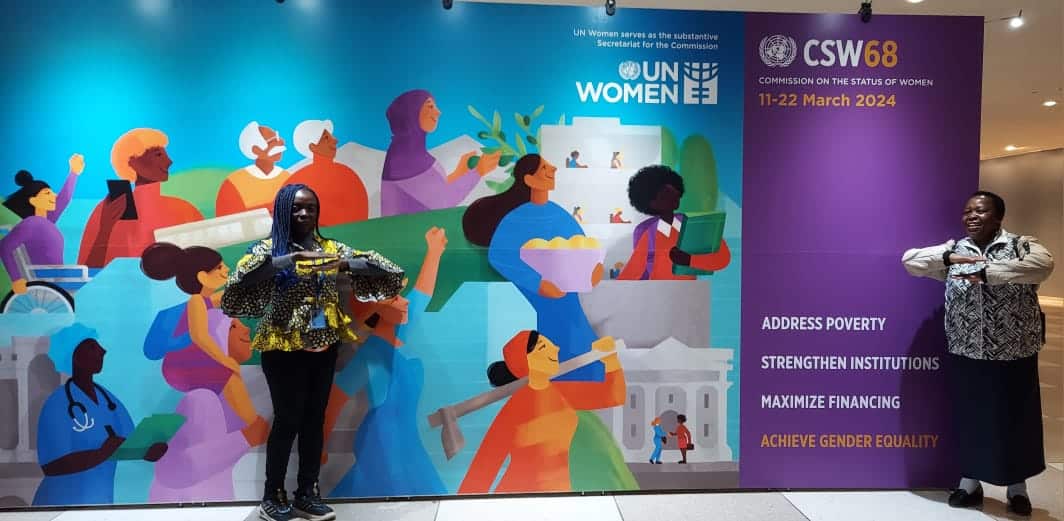The 68th annual Commission on the Status of Women (CSW68), the United Nation’s largest annual gathering on gender equality and women’s empowerment, convened from March 11th to 22nd, 2024. This year’s theme was “Accelerating the achievement of gender equality and the empowerment of all women and girls by addressing poverty and strengthening institutions and financing with a gender perspective.”
Throughout the session, discussions focused on critical issues such as social protection systems, access to public services, and sustainable infrastructure to promote gender equality and empower women and girls. CSW68 brought together world leaders, including Heads of State, vice-presidents, and over 100 Ministers. Additionally, delegates from NGOs accredited to the Economic and Social Council (ECOSOC) participated, along with an estimated 4,800 representatives of civil society organizations, marking the second-highest attendance in CSW records. Notably, Margaret Mwarili, the UN-NGO representative, and Maki Saito, an Alumnae of the Sacred Heart, represented the Society of the Sacred Heart.
The session hosted over 1,000 side and parallel events organized by UN Member States, intergovernmental organizations, UN entities, Civil Society, and Youth-led organizations. These events aimed to inform and inspire grassroots efforts and gender equality advocacy globally, facilitating the exchange of experiences and knowledge among young people to address poverty rates among women and girls.
Key commitments emerged from the session, including pledges by UN Heads of States to strengthen financing and institutions to eradicate women’s and girls’ poverty. The session recognized the pivotal role of empowering women in fostering prosperity and strength within nations. Attendees were urged to accelerate progress towards gender equality by dismantling stereotypes, investing in programs to end violence against women and girls, and prioritizing education as a fundamental tool for empowerment.
The session’s conclusions highlighted the need to mobilize financial resources from public and private sources, ensure a gender lens in national budgeting processes, and prevent regressive taxation that disproportionately affects women and girls with low or no income. Recommendations also emphasized increasing official development assistance, implementing gender-responsive economic and social policies, and scaling up investment in the care economy to reduce women’s time in care and expand their employment opportunities.
The closing of the 68th session paved the way for the opening of the 69th session of the Commission on the Status of Women (CSW69), scheduled from March 10th to 21st, 2025, in New York.
Margaret Mwarili rscj
Representative, Sacred Heart at the UN




